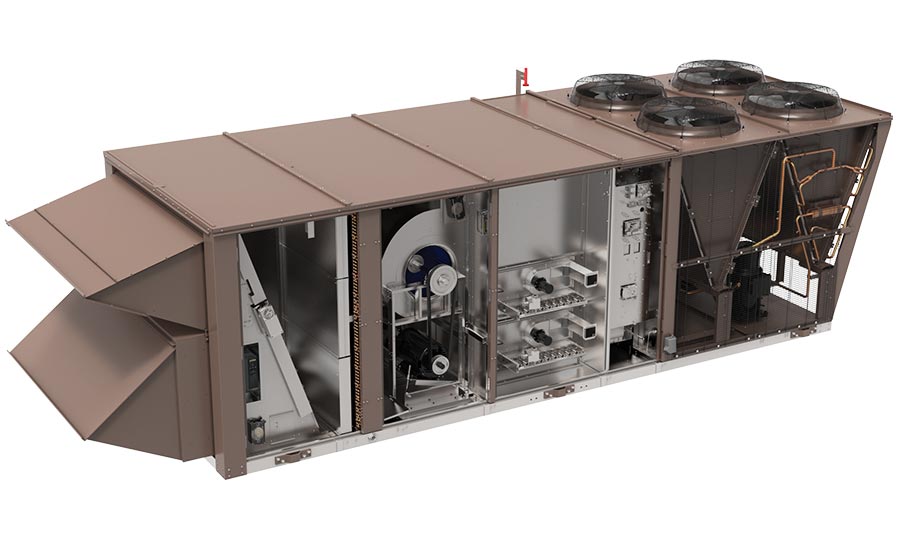
- By unitedhvac
- October 20, 2023
- HVAC Equipment
- Comments:201
Rooftop HVAC units are a common sight atop commercial buildings and even some residential structures, playing a crucial role in climate control. But what exactly are these units, and why are they so popular? In this blog post, we’ll delve into the world of rooftop HVAC units, exploring their functions, advantages, and potential drawbacks.
What is a Rooftop HVAC Unit?
A rooftop HVAC unit, or rooftop package unit, is a self-contained heating, ventilation, and air conditioning system that is installed on the roof of a building. These units are known for their space-saving design and efficiency in serving the heating and cooling needs of a facility.
Advantages of Rooftop HVAC Units:
-
Space Efficiency:
- Rooftop units free up valuable indoor space, allowing for more flexibility in the layout and usage of the building’s interior.
-
Easy Installation:
- Installation is typically simpler and faster because the unit is preassembled and located on the roof, minimizing disruptions to daily operations.
-
Reduced Noise Inside:
- Placing the HVAC unit on the roof helps in keeping noise levels lower inside the building, creating a more comfortable environment for occupants.
-
Accessibility for Maintenance:
- Rooftop units are easily accessible for routine maintenance and repairs, facilitating quicker service and minimizing downtime.
-
Zoning Capabilities:
- Many rooftop units offer zoning options, allowing for precise control over different areas of a building, optimizing energy usage.
Drawbacks of Rooftop HVAC Units:
-
Initial Cost:
- The upfront cost of purchasing and installing rooftop HVAC units can be higher compared to other systems.
-
Aesthetics:
- Some may find rooftop units less aesthetically pleasing, as they are visible from the ground and can impact the building’s exterior appearance.
-
Weather Exposure:
- Rooftop units are exposed to the elements, which may lead to faster wear and tear. Regular maintenance is crucial to ensuring longevity.
-
Limited Capacity:
- For larger buildings, multiple rooftop units may be required, potentially taking up significant roof space.
Conclusion:
In the world of HVAC systems, rooftop units stand out for their practicality and efficiency. They offer a space-saving solution for climate control, especially in commercial settings. While they come with certain drawbacks, their benefits often outweigh the challenges, making them a popular choice for many building owners and operators.
Whether you’re considering installing a rooftop HVAC unit or simply curious about their functionality, understanding the pros and cons can help you make informed decisions about the climate control system that best suits your needs.
